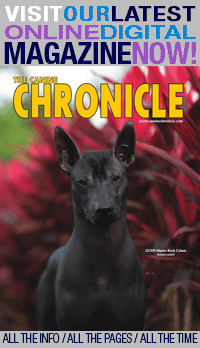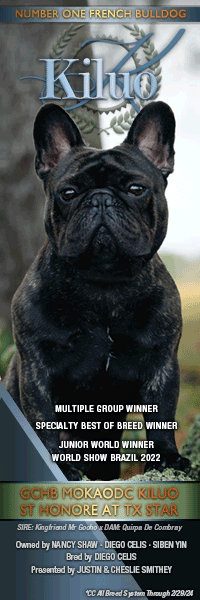Unexpected Genetic Variant Combinations Discovered at Agouti Signaling Protein (ASIP) Locus in Dogs
 Expansion of landmark study of dog coat colors finds new ASIP allele variant combinations, suggest chromosomal rearrangement may be responsible for atypical genotypes
Expansion of landmark study of dog coat colors finds new ASIP allele variant combinations, suggest chromosomal rearrangement may be responsible for atypical genotypes
Wisdom Health Genetics, the world’s leader in pet genetics and makers of the WISDOM PANEL™ dog DNA tests, announced today the publication in Genes of a study conducted by Purdue University and Wisdom Health Genetics.
In the study, Atypical genotypes for canine Agouti Signaling Protein suggest novel chromosomal rearrangement, researchers characterize atypical genotypes for one of the proteins responsible for regulating the pigment in a dog’s coat, known as Agouti Signaling Protein (ASIP).
Using Wisdom Health Genetics’ database of nearly two million DNA samples, this study found that a small number of breeds can carry three or more allele variants, as opposed to the standard two variants that typically occur at the ASIP locus. Some of the breeds impacted by this rare anomaly are the Tibetan Spaniel, Whippet, and East-Siberian Laika.
This research is an expansion of the 2019 landmark publication of coat color genetics in PLOS ONEin which the Purdue University and Wisdom Health Genetics teams initially identified three or more ASIP allele variants across multiple dogs.
“Thanks to the inclusion of basic coat color alleles in popular genetic screening panels like Wisdom Panel™ DNA tests, vast genotyped datasets now exist at a remarkable scale,” said Rebecca Chodroff Foran, Ph.D., R&D Director at Wisdom Health Genetics. “We can examine these data to uncover rare anomalies like those that our researchers found at the ASIP locus, furthering the field of canine genetic research.”
This expansion included samples from multiple different commercial testing laboratories, highlighting the need for further exploration of coat color and pattern inheritance in the future.
“These findings will not only help further our understanding of the mechanics behind coat color genetics. They will also help provide specific recommendations to improve industry standards in the interpretation of coat color genotype results,” said Jonas Donner, Ph.D., Discovery Manager at Wisdom Health Genetics.
Based on the discovery of these atypical genotypes, the researchers recommend several changes to the methods of analysis and reporting of dog coat color genetics, specifically re-assessing the analysis and reporting of ASIP genotype results.
“Due to the visual nature of coat colors, this area of dog genetics is a great model to investigate unexpected genetic anomalies. In this study, we outline several different possible scenarios that could be causing these unusual findings, including extra copies of all or part of the ASIP gene or changes in the gene’s arrangement,” said Kari Ekenstedt DVM, Ph.D., assistant professor and dog genetics researcher at Purdue University’s College of Veterinary Medicine. “We are excited to continue to explore the exact mechanism behind these previously unknown ASIP genetic variant combinations and determine if it is the same mechanism across all the breeds affected.”
About the Agouti Signaling Protein Study
- Continuation of landmark study of coat color genetics published in Fall 2019: Wisdom Health Genetics: True Colors. In the study, researchers previously identified the presence of more than two allele variants found at the ASIP locus in the commercially tested cohort of 11,790 dogs representing 14 breeds and the Dingo, finding unexpected ASIP allele variant combinations in 679 of the 11,790 dogs.
- The current study examined an additional cohort of 3,189 purebred dogs finding anomalous ASIP genotypes occurring across 17 dog breeds and Dingoes at frequencies of 1.32%-63.34%. The dog breeds identified were Anatolian Shepherd, Basenji, Berger Picard, Boston Terrier, Brussels Griffon, Dogo Argentino, East-Siberian Laika, Great Dane, Great Pyrenees, Irish Terrier, Kai Ken, Lagotto Romagnolo, Maremma Sheepdog, Spanish Greyhound, Tibetan Mastiff, Tibetan Spaniel, and Whippet.
- The research team believes that these newly discovered, unexpected genotype combinations have not been identified in purebred dogs prior to this study due to their low frequency. Breeders will need to be cognizant that current interpretations of the genotypic data may not fully represent a dog’s phenotype.
- Using these findings, the researchers analyzed the potential impact from these unusual allele combinations and mechanisms that could be causing them, namely: duplication, gene recombination, methylation, and incorrect linking of markers used in trait analysis.
Short URL: https://caninechronicle.com/?p=187864
Comments are closed












